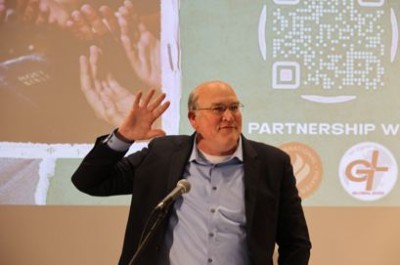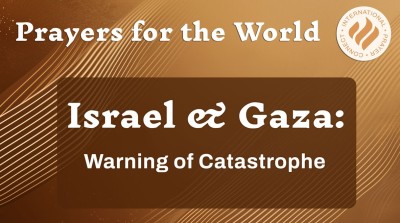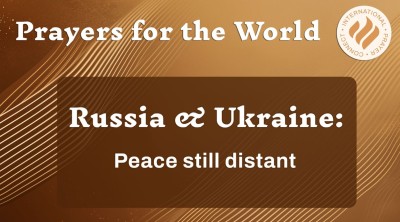US-India relations entered a turbulent phase when Donald Trump tore into India for its continued oil imports from Russia and slow progress on trade negotiations. Formerly close to Prime Minister Narendra Modi, Trump, accusing India of funding Russia’s war in Ukraine, has vowed to raise tariffs on Indian exports to 50%. India regards its Russian energy imports as economically necessary; it has a longstanding relationship with Russia and is among the largest importers of Russian oil. Modi’s government has so far resisted Trump’s pressure, particularly over opening up US access to the heavily protected agriculture and dairy sectors. In response to Trump’s belligerent language, Modi has called on citizens to buy only Indian-made goods, leading to greater economic self-reliance. Political commentators note that it will be very difficult for Modi to give any large concessions in a trade deal, given the growing anger within India towards Trump.
Brazil’s supreme court has placed former president Jair Bolsonaro under house arrest as he stands trial for allegedly plotting a coup to overturn the 2022 election won by Luiz Inacio Lula da Silva. Justice Alexandre de Moraes, citing violations of restrictions on Bolsonaro’s social media activity and political messaging, has ordered the measure. Bolsonaro, accused of leading an armed criminal group and attempting to abolish democratic rule, faces up to twelve years in prison if convicted. The prosecution links him to the January 2023 storming of Brazil’s congress and other institutions by his supporters. Bolsonaro denies all charges, calling the case a political witch hunt. The ruling has sparked political tensions, with Donald Trump’s administration imposing tariffs on Brazil and sanctions on Moraes, which Lula has called ‘unacceptable’. Bolsonaro’s movements are now restricted, and his communications have been seized; only close family and lawyers are allowed to visit. There have been widespread rallies to protest this decision: see
USA: vaccine projects lose funding
07 Aug 2025The US health department is to cancel $500 million in funding for 22 mRNA vaccine projects targeting viruses such as flu and Covid-19, including those by Pfizer and Moderna. Health Secretary Robert F Kennedy Jr, a vaccine sceptic, claimed mRNA technology poses more risks than benefits for respiratory viruses. Health experts strongly disagreed, noting that the vaccines were pivotal in slowing Covid-19 and saving millions of lives. They warned that withdrawing support undermines one of the most effective tools for pandemic preparedness. Kennedy argued the department would fund alternative vaccine platforms with broader safety records. However, experts say that viruses mutate naturally and that mRNA vaccines are remarkably safe, effective, and faster to develop than traditional vaccines. The decision is part of broader changes Kennedy has made to vaccine policy, including removing Covid vaccines from the recommended immunisation schedule for healthy children and pregnant women.
Customs officials have intercepted a shipment of over 1,620 live parrots and canaries at Lagos' international airport, bound for Kuwait without the required permits. The birds, including protected ring-necked parakeets and yellow-fronted canaries, were seized during a routine inspection on 31 July. A spokesman said that the airport remains under strict surveillance to prevent illegal trafficking. As a signatory to the Convention on International Trade in Endangered Species (CITES), Nigeria must ensure such exports have legal documentation, which this shipment did not have. Authorities are investigating those behind the attempted export. The rescued birds were handed over to the National Park Service for rehabilitation. Conservationists view this seizure as a major success in Nigeria’s ongoing struggle against wildlife trafficking. Although the country is a key transit hub due to porous borders, widespread corruption, and weak enforcement, the interception is a sign of positive change in the fight against illegal wildlife trade, which globally generates $8–10 billion annually.
“On your walls, O Jerusalem, I have set watchmen; all the day and all the night they shall never be silent. You who put the Lord in remembrance, take no rest, and give him no rest until he establishes Jerusalem and makes it a praise in the earth.” – Isaiah 62:6-7 (ESV)
We are pleased to bring you the August 2025 edition of IPC Connections!
If you are reading IPC Connections for the first time, may I welcome you to the IPC Global Family! It really is a joy to have you with us as we seek to be ‘Exalting Jesus, catalyzing united prayer for Kingdom transformation of peoples, cities and nations’.
I trust that you will be blessed and encouraged as you read the articles, news and resources info this month.
Ignite the Fire 2025 – From Papua to the Nations!

Last month, God moved mightily in Papua, Indonesia - the once-called “ends of the earth” - during the Ignite the Fire 2025 summit. Over 700 leaders from 22 nations gathered, including heads of Indonesian denominations, governors, business and mission leaders, and 800 children’s workers - all uniting around the summit’s theme: 'From Papua to the Nations'. Read more about the event below!
Shine! – 19th August 2025 (Starts 0:00 HRS EST)
 Shine! is a special 24-hour Global Day of Worship and Prayer – with inter-generational leaders from around the world!
Shine! is a special 24-hour Global Day of Worship and Prayer – with inter-generational leaders from around the world!
2BC are inviting kids, families, churches, and ministries everywhere to join in this joyful vision as we lift up the name of Jesus and pray for the new and exciting “Light of the World” movie to Shine! across every nation. More below!

We encourage you to join 24-7 Prayer’s global wave of non-stop prayer for every nation, 1–7 September. Set up a 24-7 Prayer Room in your church, home or school - and be part of this united cry for God’s presence and transformation!
Download your free guide and register today:
www.24-7prayer.com/weekofprayer
Global 2033 Festival of Unity & Hope
 GLOBAL 2033’s JUBILEE FESTIVAL OF UNITY & HOPE last weekend welcomed 25,000+ young people from around the world for a worship festival at the Piazza Del Popolo, Rome.
GLOBAL 2033’s JUBILEE FESTIVAL OF UNITY & HOPE last weekend welcomed 25,000+ young people from around the world for a worship festival at the Piazza Del Popolo, Rome.
It was a truly unique event with worship, the preaching of the Gospel, and the mobilization of young people into world missions towards 2033.
Let's be praying for the 1 million young people taking part in other Jubilee Youth events over the next few weeks - to be reached with the Gospel! See World News below
Watch the LiveStream
Will you become an IPC Prayer Flame Partner?…
 “The fire shall ever be burning upon the altar; it shall never go out.” (Leviticus 6:13)
“The fire shall ever be burning upon the altar; it shall never go out.” (Leviticus 6:13)
This past year, your faithful prayers have been such a blessing to us - and for that, we’re deeply grateful.
As we look ahead towards 2026, the opportunities before us are vast and urgent. To fully embrace this moment, we need a devoted family of monthly supporters to help keep the fire of prayer burning brightly across the nations - just as God commanded His altar fire never to go out.
That’s why we’re inviting you to become an IPC Prayer Flame Partner.
Your monthly gifts - no matter the size - will help sustain and spread this global movement of united prayer, ensuring that the flame on God’s altar of intercession never dies out.
We’ve made it simple and secure to give monthly online through PayPal. Every gift matters. Every prayer fuels the vision. Will you help keep the fire burning?
Click Here to support IPC monthly via PayPal, or visit www.ipcprayer.org/donate
Together, let’s keep the fire on the altar blazing - and see the world transformed by prayer!
15 Days of Prayer for the Hindu World - 12th-26th October, 2025
 We invite you and your families, contacts and networks to join us as we pray for 15 days, for Great Commission breakthroughs across the Hindu World.
We invite you and your families, contacts and networks to join us as we pray for 15 days, for Great Commission breakthroughs across the Hindu World.
We have prepared an adult and children's prayer guide that will be published shortly in 30+ languages, free, from the 110 Cities website.
The 15 days includes a Global Day of Prayer for the Hindu World on 20th October, with an option to join us online where hourly hosts will introduce focused prayers and worship led from across the nations.
This will be the fourth of our 4 worldwide days of prayer for 2025! – Watch this Intro Video!

10 Days Film PreviewF
rom September 5-22, our friends at 10 Days are offering a special pre-release of ‘10 Days’, a new feature-length documentary on the global impacts of extraordinary prayer. This is an inspiring and moving film packed with testimonies to the power of prayer! More info below!
Editorial – ’24-7 Prayer: A Call to Pray Around the Clock, Around the Globe’ – Dr Jason Hubbard
 In this month’s editorial article, Dr. Jason Hubbard invites us to imagine a world where every city is covered in a canopy of 24/7 prayer - God’s people united in worship and intercession, day and night.
In this month’s editorial article, Dr. Jason Hubbard invites us to imagine a world where every city is covered in a canopy of 24/7 prayer - God’s people united in worship and intercession, day and night.
Rooted in Scripture and inspired by the early Church, this powerful vision is both practical and possible.
Learn how your church or family can take simple steps to be part of this global movement, including the upcoming ‘7 Days on the Wall’ prayer week.
Let’s pray without ceasing - for revival, for the nations, and for the earth to be filled with the knowledge of the Glory of the Lord, as the waters cover the sea!
Read “24-7 Prayer” below! | Download PDF
With Grateful Thanks...
“The prayer of a righteous person is powerful and effective.” (James 5:16)
Thank you for your continued partnership with International Prayer Connect. Your prayers, passion, and perseverance are making an eternal difference.
You are part of a growing army of intercessors - lifting up the name of Jesus and contending for Kingdom breakthrough across the nations.
Together, we are lighting the fires of revival and preparing the way for the Lord (Isaiah 40:3).
May your heart be strengthened, your faith renewed, and your prayers filled with fresh fire from Heaven.
 Every blessing,
Every blessing,
Jason Hubbard - Director
International Prayer Connect
Disclaimer… The views and opinions expressed in IPC Connections and the articles on our website are those of individuals and our partner organisations. They do not necessarily represent the policies or views of IPC or its individual leaders.
We aim to respect the diversity within the prayer movement and yet embrace our unified calling to mobilise prayer for the nations. (2 Chron 7:14) If you wish to discuss the appropriateness of any articles, please contact us. If for any reason you do not wish to receive IPC emails in future, please click the unsubscribe link below.
Editorial: ‘24/7 Prayer – Around the Throne, Around the Clock, Around the Globe.’ - Dr Jason Hubbard
24/7 Prayer: Around the Throne – Around the Clock – Around the Globe
It’s our desire to see canopies of 24/7 prayer in every nation of the world by 2033 - Gods’ people praying Around the Throne, Around the Clock and Around the Globe!
One of the clearest commands to engage in continual prayer is found in 1 Thessalonians 5:16-18,
“Rejoice always, pray without ceasing, in everything give thanks; for this is the will of God in Christ Jesus for you”
It is clear that this command is to the gathered church community at Thessalonica. In the New Testament, Paul urges the entire community - not just individuals - to pray without ceasing, as this is God's will in Christ Jesus for everyone.
We pray better ‘together!’
Clearly the New Testament church was devoted to prayer. Six times, the Greek word for ‘devoted’ is used in relation to prayer; 3 patterns in the book of Acts, and 3 commands in the epistles. ‘Devoted’ meant to be diligently occupied with, to persist in, to be ‘constantly engaged in.’ These were regular, set times of prayer, like in Acts 3:1, “Now Peter and John went up together to the temple at the hour of prayer, the ninth hour.”
Acts 1:14, “All these with one accord were devoting themselves to prayer”
Acts 2:42, “And they devoted themselves to the apostles’ teaching and the fellowship, to the breaking of bread and the prayers”
Acts 6:4, “But we will devote ourselves to prayer and to the ministry of the word”
Ephesians 6:18, “Praying at all times in the Spirit, with all prayer and supplication. To that end, keep alert with all perseverance”
Romans 12:12, “Rejoice in hope, be patient in tribulation, be constant in prayer”
Colossians 4:2, “Continue steadfastly in prayer, being watchful in it with thanksgiving”
It is absolutely God’s will that we pray without ceasing, devoting ourselves to pray as a house of prayer for all nations!
What would it look like to see 24/7 prayer in your city?
 Practically speaking, what if each church in a city committed to a 24hr day of prayer once a month and then passed the baton to the next church in the city?
Practically speaking, what if each church in a city committed to a 24hr day of prayer once a month and then passed the baton to the next church in the city?
If you had 30 churches engaged in this rhythm of prayer you would see a canopy of 24/7 prayer over the city!
People could commit to convenient times and locations of prayer that fit their busy schedules. Families could commit to praying and worshipping together in their homes with their children. People could gather together in a city-wide house of prayer or prayer tower. It doesn’t matter how you organize this. It is simply the principle of churches in your city committing to regular times of prayer and worship, praying around the throne, around the clock and praying around the globe!
 One of the amazing global 24/7 prayer initiatives is called “7 Days on the Wall – A Global Call to 24/7 Prayer for Revival … among the nations!”
One of the amazing global 24/7 prayer initiatives is called “7 Days on the Wall – A Global Call to 24/7 Prayer for Revival … among the nations!”
The 7 Days on the Wall initiative was started in South Africa after the World Prayer Assembly was held in Indonesia in 2012.
Congregations sign up to pray for a week of 24/7 prayer for revival in their city and in the nations!
The next week of prayer is scheduled for August 11-17th – the focus for this week of prayer will be praying for the salvation of people in 7 unreached cities!
Will You Join Us?
As we look to the future, the call to establish canopies of prayer in every nation by 2033 is both urgent and possible - if each of us takes our place. Whether you are a pastor, a parent, a young person – a newbie to prayer or a seasoned prayer warrior - your prayers matter. Revival history tells us that sustained, united, fervent prayer is the spark that precedes the move of God.
So how do we engage practically and personally?
- Start with 1 Hour
Choose one hour a week - or a month - to pray. Invite others to join you, and simply start where you are!
“Could you not watch with Me one hour?” - Matthew 26:40
- Build a rhythm of prayer in your community.
Encourage your church or prayer group to adopt one day a month to pray. You’ll soon discover that 24/7 prayer across a city is possible!
“They all joined together constantly in prayer…” - Acts 1:14
- Pray with boldness for the nations!
As you pray around the clock, remember to pray around the globe - for revival, salvation, and kingdom transformation.
“Ask of me, and I will make the nations your inheritance…” - Psalm 2:8
We believe God is calling His Church into a lifestyle of night-and-day prayer that exalts Jesus and invites His glory. You can be part of this great movement.
Let’s do this—together, Around the Throne, Around the Clock and Around the Globe for the Global Glory of God!
Dr Jason Hubbard – Director
International Prayer Connect
A senior United Nations official has issued a grave warning about the risks of expanding military operations in Gaza, cautioning that such a move could lead to "catastrophic consequences" for millions of Palestinians and jeopardize the lives of Israeli hostages held by Hamas.
Israeli leadership reportedly considers a full reoccupation of Gaza as part of its military strategy following ongoing conflict that began in October 2023, when Hamas launched a deadly attack on southern Israel. The plan to control the entire Gaza Strip is deeply controversial within Israel and internationally, given that more than two million Palestinians live in the region.
The United Nations has repeatedly called for a ceasefire and the immediate release of hostages, emphasizing the urgent need for humanitarian aid. Conditions in Gaza have been described as "squalid" and "inhumane," with severe restrictions on food and medical supplies leading to a man-made famine. Since May, more than 1,200 Palestinians have died while trying to access essential aid, including children suffering from malnutrition.
The conflict has inflicted immense suffering on families on both sides, with tens of thousands killed and many more displaced. The path forward remains fraught with challenges as political pressures and military decisions threaten further escalation.
From a biblical perspective, this moment calls the global community to lament the loss of innocent lives and to seek God’s peace that transcends human understanding. Scripture reminds believers that God is close to the broken-hearted and calls His people to be peacemakers in times of turmoil.
As the region faces uncertainty, prayers for mercy, protection, and reconciliation are vital. The hope is that leaders will pursue paths that honour the dignity of all people and that humanitarian aid flows freely to those in desperate need.
Prayer Pointers:
- Pray: for protection and provision for the vulnerable families in Gaza facing severe shortages and violence.
- Pray: ask God to soften the hearts of leaders toward peace, justice, and the preservation of life.
- Pray: for comfort and hope for hostages and their families, and for God’s presence amid suffering.
Prayer for refuge and justice:
Father God, in the midst of chaos and sorrow, be the refuge for those who suffer. Uphold the weak, grant wisdom to the leaders, and bring peace that surpasses all understanding. Let Your justice roll like a river and mercy like an endless stream. Amen
“The Lord is righteous in all his ways and faithful in all he does. The Lord is near to all who call on him, to all who call on him in truth.” Psalm 145:17-18
Hope for an end to the war in Ukraine remains uncertain as Russian President Vladimir Putin signalled that his forces would continue advancing despite international calls for a ceasefire. Speaking from Valaam Monastery, he said negotiations with Ukraine could continue, but his conditions - Ukrainian neutrality and recognition of Russian-occupied territories - remain unchanged, conditions Kyiv sees as unacceptable.
The comments came one day after one of the deadliest Russian strikes on Kyiv in recent months. At least 31 people, including five children, were killed in a wave of missile and drone attacks. Ukrainian President Volodymyr Zelensky expressed willingness to meet with Putin “any time,” while also questioning whether Russia’s overtures reflected a sincere desire for lasting peace or simply a strategy to delay sanctions and prolong the war.
U.S. President Donald Trump has publicly expressed “disappointment” in Moscow’s refusal to cease hostilities, threatening additional sanctions if Russia does not agree to a ceasefire. Previous deadlines for ending the war have passed without impact, and Putin appeared unmoved by the latest ultimatum.
Efforts at peace have repeatedly faltered over the past two years. Talks hosted in Istanbul produced prisoner exchanges but no long-term agreement. Meanwhile, the human toll continues to rise, as relentless attacks force families into shelters and leave cities scarred by destruction. Behind the political manoeuvring and shifting ultimatums are millions of civilians longing for safety and a return to normal life.
In the face of ongoing conflict, Scripture reminds us that God is attentive to the suffering of the innocent and sovereign over the nations. While global powers weigh strategies and deadlines, His people are called to lift up both nations in prayer - for mercy, protection, and a peace that endures.
Prayer Pointers
- Pray: for civilians in Ukraine, that God would shield them from violence and provide safety, comfort, and daily provision.
- Pray: for world leaders to seek peace sincerely, acting with courage and discernment to prevent further suffering.
- Pray: and ask God to bring a just resolution to the conflict and soften hearts that are set on war.
Prayer – Prayer for the Church and those in Leadership
Lord, we lift the people of Ukraine before You. Protect the innocent, guide leaders toward true peace, and bring an end to this devastating conflict. Let Your mercy and justice prevail where human solutions fail. Amen
“He makes wars cease to the ends of the earth.” Psalm 46:9







